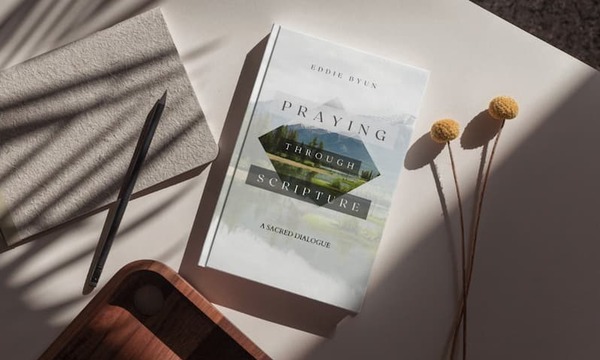(Before reading Part Two of this two part series, you may want to read Part One.)
What is someone responsible to do when she becomes aware of others’ cheating?
One of the reasons that Lance Armstrong and others were able to circumvent the structures designed to secure fair play for beauty and truth in bicycle road racing (and other sports, think of MLB and track and field) is that people who knew what these athletes were doing said nothing. Coaches, spouses, teammates, agents, and representatives for sponsors stood to gain much from the successes of these athletes. The entourage for the athlete with a warped sense of fair play kept their mouths shut, pretended that the PEDs were not wrong, and in some cases even denied publicly that the athletes were violating fair play. What if one person had spoken the truth and uncovered the lie? What if everyone around Lance Armstrong had said to him, “you are crazy and this is wrong; don't do this”?
The code of secrecy that protects athletes who cheat is not so different from what siblings in a family do to hide misdeeds from parents, what students do when they know a roommate has plagiarized an assignment, and even what friends do by standing idly by as others steal, drive recklessly, or spout degrading slurs against other people. Strangely, people frequently demonstrate a failure to intervene when a crime is being committed, even a violent assault. Why?
All too often, human beings are like the Levite and the priest in Jesus’ parable of the Good Samaritan—we don’t want to get involved in the plight of others. Maybe we should see the occasion of cheating as a plight and trap, a failure to live by fair play. The would-be cheater or criminal needs our help. For the Christian, Galatians 6:1-2 is fitting: “Brothers, if anyone is caught in any transgression, you who are spiritual [= mature] should restore him in a spirit of gentleness. Keep watch on yourself, lest you too be tempted. Bear one another’s burdens, and so fulfill the law of Christ” (ESV). In other words, the loving thing to do is to warn others against committing misdeeds, and supporting them to do right instead. (That is hard to do without sounding like a parent, but maybe our friends who want to cheat should stop acting like self-absorbed children.)
Against this intervention for the good of others when fair play is being violated, our culture frowns on whistleblowers. Somehow, the “rat” is the person who tells the truth when wrongs are being done. Parents sometimes discourage their children from being “tattle-tales.” Thieves and cheats have developed an ethic of “protect the evil doer” as the right thing to do. Obviously this is upside down: the calling of good (i.e., telling the truth, defending fair play) as evil, and calling the evil of suppressing the truth in the protection of evil as good.
There are two forms of truth-telling relevant here, and one is more needed than the other. First, there is the “I’m telling on you” sort that has earned the label of “rat.” Sometimes this is needed when the offender will not listen to good sense, so the authorities must be told (whether that’s mom or the government). Informing on one’s friends is not the only way to help.
The second and more needed intervention is what I am calling for here in our lives in a love-one-another way. I had a friend do this for me when I was about 13. Snow had fallen for the only time in my childhood in Sacramento on one unusual morning. My friend and I had scraped together enough snow for a basketful of snowballs. Whizzing along on our bikes with the arsenal, we threw snowballs at the doors of houses with a satisfying splat for direct hits. Harmless, right? At one house, my calibration was wrong and the snowball hit the large picture window next to the front door, cutting straight through the glass to land on the dining room carpet. My friend caught up with me in a driveway where I’d stopped around the corner, safe I thought. My instinct was to get away clean from the crime. He shocked me but saying simply, “You have to go back.” Of course I knew he was right. If he had said nothing I would have done nothing, but here he was challenging my evil and calling me to do the right. (When I went back, the homeowner thought I’d thrown a rock. She allowed me to pay for the window.)
I wish that there were more times in my life when I was on the brink of some misdeed and a friend had said to me, “Hey, don’t do that. It’s stupid and wrong.” Instead, I fear that we are often doing the other sort of influence, saying to each other, “No, it’s not wrong, because… everyone is doing it… this is leveling the playing field… you won’t get caught… it’s just this once… it’s a bad rule that we shouldn’t have to follow” and etc.
Two examples of this sort of “one another service” can guide us. First, in 1 Samuel 25, Abigail stood up to King David when he was about to commit murder on a large scale. He was offended at Nabal’s refusal to recognize the protective services of David’s men. Abigail got in David’s way, told him it was wrong, and he listened, later thanking her. She is rightly praised as an intelligent woman. What were the men around David thinking? Why didn’t one of them speak up? Abigail stood up to him, probably risking her life to do it. She saw what others refused to see, and she pushed hard against David’s murderous intentions. We all need to be tough like her to help each other turn away from evil.
Second, Paul faced Peter at Antioch. He tells of this in Galatians. Peter had withdrawn from the non-Jewish Christians at meals, which Paul perceived as a return to a distorted Torah-observance that violated the liberation through the Gospel. Peter relented. Have you ever thought how hard that must have been for Paul to stand up to Peter in this situation? We all need such stubbornness for the good. This is the sort of truth we need from each other in daily life. This is the call to follow the right and the good that takes courage to speak. What of all the people around Adolf Hitler who did not denounce his evil designs? This is not a game. All people have some sort of influence on other people. We are wise if we are receptive to the warnings of one another, when given properly, without condemnation or following some sort of nit picky personal ethic.
The hero as the “one another” should be regarded as that friend, spouse, coach, or roommate who confronts another person with the wrong that is contemplated. What if every person surrounding Lance Armstrong (including his wife) had said to him, “This is wrong. Don’t do this”? At least two American cyclists of the same time period as Armstrong have reported that their wives insisted that they stop doping. Women have power, since both disgraced athletes said that they gave up doping at that point. What if every wife had done so for the hundreds of cyclists that took up doping at life-threatening levels? What if every coach, teammate, sponsor representative, and whoever else having knowledge of the athlete’s departure into the far country of PEDs was committed to fair play above winning?
The Christian, at least, seems to be obligated to honor Jesus by reminding others of the truth when they encounter darkness. That’s not to say we are appointed to be little referees on our friends’ and co-workers’ lives. I'm not talking about specs of sawdust in the eye. In serious matters (yes, sport can be serious), we all have an obligation to uphold the good, the beautiful, and the true that is possible in fair play of sport. This is not easy to do properly. But we have a good example. To say, without condemnation, “Stop this, it’s wrong for you to do this” is no different from Jesus’ charge to a woman that she “Go. From now on sin no more” (John 8:10-11).
 Biola University
Biola University
.jpg)


.jpg)